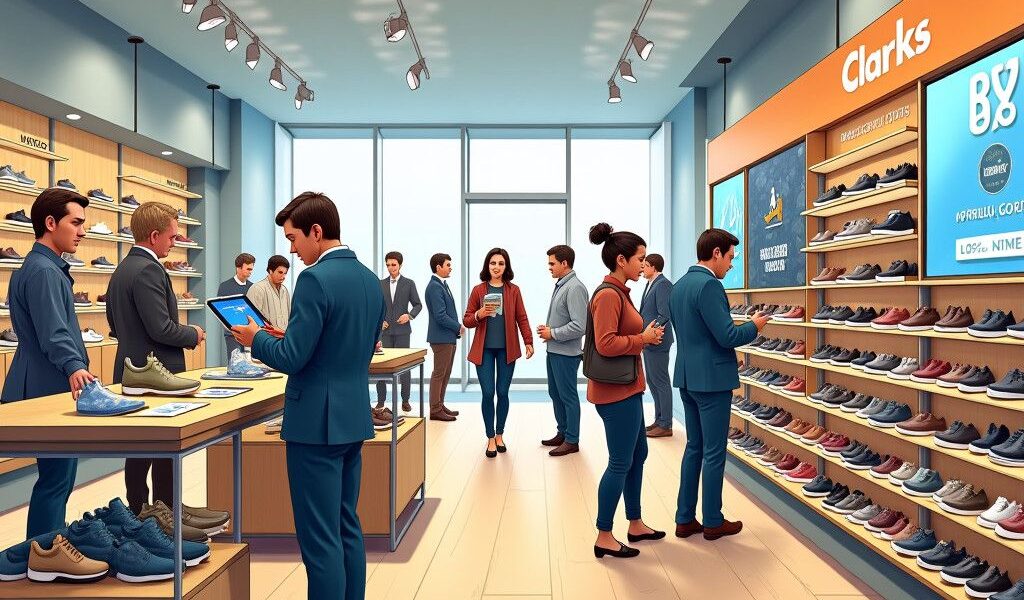Clarks, a distinguished shoe retailer with a rich heritage spanning over 200 years, has faced significant challenges in recent years regarding its IT infrastructure. Founded in Somerset, England, Clarks is known for its innovative craftsmanship and diverse collection that boasts more than 22,000 styles. However, as technology rapidly evolved and consumer expectations shifted, the company’s aging systems threatened its operational viability. By 2022, Clarks identified a crucial need to transition from its monolithic commerce platform before it faced a possible operational shutdown.
The urgency of change was underscored by a MACH Alliance survey that revealed 41% of large organizations were still relying on legacy IT systems. This stark statistic reflects a wider struggle within the retail sector, where many businesses find themselves constrained by outdated technologies. Understanding the need to modernize, Clarks recognized it had to embrace a digital transformation strategy that would leverage more agile technology stacks to enhance customer experience and operational efficiency.
Strategizing a New Path Forward
In collaboration with the MACH Alliance, Clarks set out to overhaul both its digital and in-store platforms. The MACH Alliance, a non-profit organization established in 2020, provides guidance to retailers navigating the complexities of modern technology. By focusing on composable, future-proof technology stacks, Clarks sought not only to improve operational functionality but also to create exceptional experiences for its customers.
The transformation journey began in July 2022, with a target completion date in June 2023. By January of the following year, the company commenced development and launched its first updated store in the U.S. by August 2023. Remarkably, Clarks achieved several key enhancements during this brief timeline.
Clear Metrics Show Big Outcomes
The impact of this digital overhaul was significant. Clarks reported impressive increases in several vital performance metrics: customer conversions surged by 17%, site speed improved by 28%, the add-to-basket rate skyrocketed by 79%, and the start-checkout rate jumped by 47%. Additionally, the company witnessed a positive shift in gross margin, demonstrating that embracing modern solutions can yield substantial financial benefits.
With the integration of features such as Apple Pay, Google Pay, and comprehensive omni-channel capabilities, Clarks ensured that its customers enjoyed a seamless shopping experience, both online and in-store. The introduction of real-time inventory management allowed for enhanced precision in stock control, ultimately leading to better customer satisfaction.
Learning From Success: Strategic Recommendations
The scale of Clarks’ technological transformation offers valuable lessons for other retailers contemplating similar journeys. According to Meriel Neighbor, Clarks’ head of global digital product, delivery, and transformation, agility and thorough partner selection are crucial. She emphasized the importance of conducting due diligence when choosing technology partners and underscored the need to involve the business team throughout the process.
Another expert voice, Holly Hall from the MACH Alliance, stressed that retailers must adopt an incremental approach to technological changes. This requires a shift in mindset among executives and decision-makers to appreciate how restructuring technology can lead to better brand performance. She suggests that retailers focus on investing in their overall digital strategy, instead of becoming preoccupied with specific vendors or technologies that may rapidly become outdated.
Enhancing Customer Engagement Through Technology
The technological advancements Clarks imbued into its operations extend beyond just metrics. By overhauling over 400 content pages on its website and integrating new video elements and multilingual support, the retailer has improved customer engagement and personalized experiences. Hall pointed out the potential of advanced customer personalization and AI within a MACH framework, which allows brands to not only meet current demands but also prepare for future challenges.
The rewards of modernizing IT infrastructure are manifold. Enhanced e-commerce capabilities and improved omnichannel customer engagement stand out as primary benefits that retailers can derive from adopting a composable technological architecture. As demonstrated by Clarks, investing in technology that prioritizes customer interaction can lead to meaningful engagement and loyalty.
Conclusion
Clarks’ remarkable journey of digital transformation illustrates the importance of evolving retail strategies in the face of technological disruption. By rehabilitating its technology infrastructure through a commitment to composable solutions, Clarks not only safeguarded its operational health but also flourished in the competitive retail landscape. The impressive return on investment serves as a compelling testament to the benefits of adopting modern technology in engaging consumers and enhancing overall performance.











